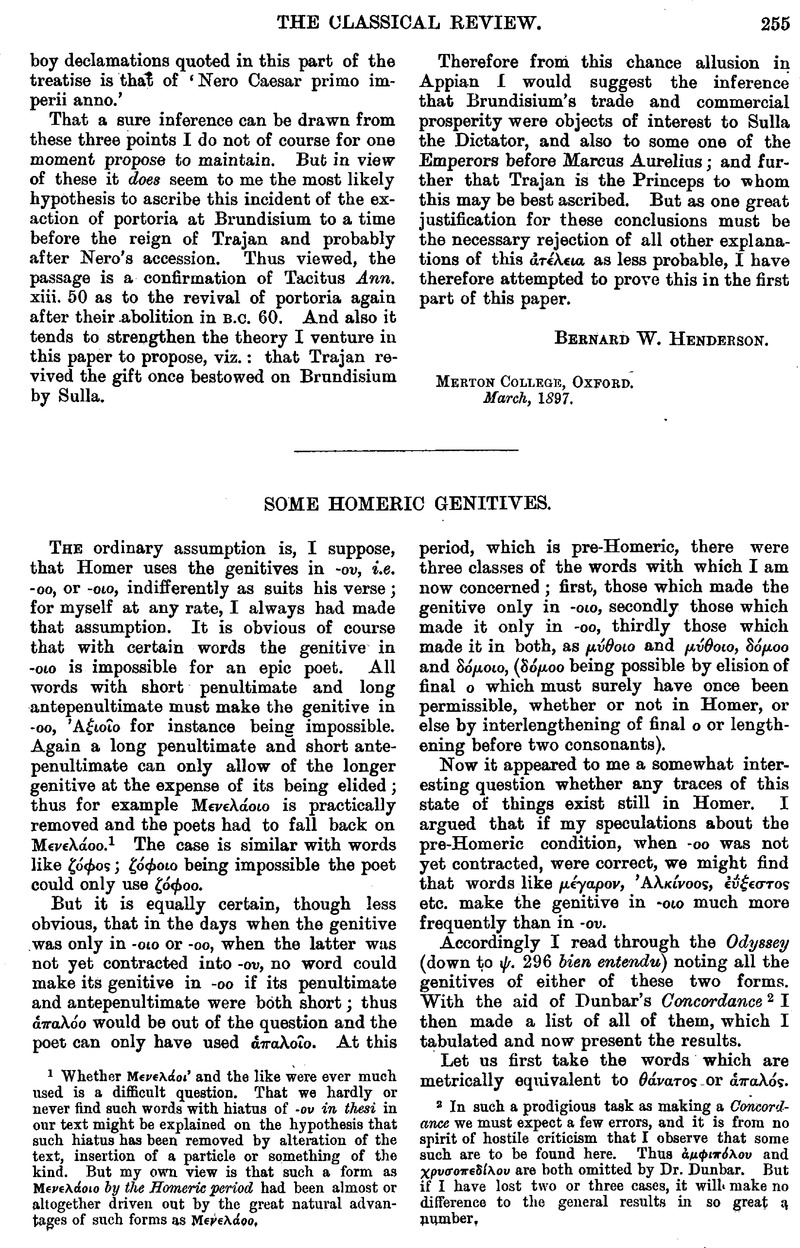Article contents
Abstract

- Type
- Review Article
- Information
- Copyright
- Copyright © The Classical Association 1897
References
page 255 note 1 Whether Mενελ⋯οι' and the like were ever much used is a difficult question. That we hardly or never find such words with hiatus of -ov in thesi in our text might be explained on the hypothesis that such hiatus has been removed by alteration of the text, insertion of a particle or something of the kind. But my own view is that such a form as Mενελ⋯οιο by the Homeric period had been almost altogether driven out by the great natural advantages of such forms as Mενελ⋯οο.
page 255 note 2 In such a prodigious task as making a Concordance we must expect a few errors, and it is from no spirit of hostile criticism that I observe that some such are to be found here. Thus ⋯μφιπ⋯λου and χρυσοπεδ⋯λου are both omitted by Dr. Dunbar. But I have lost two or three cases, it will make no difference to the general results in so great it number.
page 256 note 1 I am assuming the true reading of 705 to be εὔειἄτερ δ α ε λ ∘ ῖ ∘ κα⋯ ὠμῷ γ⋯ρα' ἒδωκεν.
page 256 note 2 I have to omit το⋯του, ![]() , τοἰου, as they not in the Concordance.
, τοἰου, as they not in the Concordance.
- 1
- Cited by


